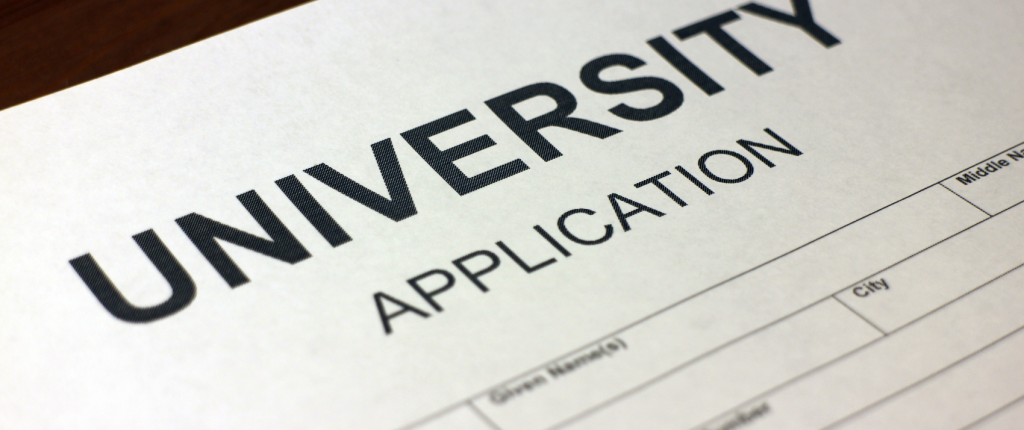Did you know that employers and scholarship committees spend an average of just 6-7 seconds reading your application before deciding whether to keep reading? According to eye-tracking studies conducted by career experts, the pressure to make an immediate impact is real. Whether you’re applying for a bursary, job, university, or learnership, your motivational letter is your chance to stand out. In this guide, we’ll show you how to craft a compelling motivational letter that not only grabs attention but also leaves a lasting impression.
Table of Content

How to Write a Motivational Letter for a Bursary
Securing a bursary can be life-changing, but the competition is fierce. Your motivational letter must highlight not only your academic prowess but also your financial need and ambition. Start by understanding the requirements of the bursary and aligning your letter with those criteria.

- Start with a strong introduction – Begin by explaining why you are applying for the bursary and how it aligns with your long-term goals. For instance, “I am applying for this bursary because it is the key to unlocking my dream of becoming a [specific profession], which I am deeply passionate about.”
- Tell your story – Make it personal. Share a compelling narrative that demonstrates your perseverance, leadership skills, and dedication to your field. For example, “Growing up in a single-parent household, I’ve had to balance school with part-time jobs, yet I’ve maintained a top rank in my class.”
- Emphasise your academic achievements – Clearly outline your academic accomplishments but also explain what drives you academically. For example, “My love for science grew from a young age when I conducted experiments with household items, and this passion has only intensified as I progressed through school.”
- Address your financial need – While being tactful, explain your financial situation and why the bursary would make a difference. Avoid oversharing or being too emotional; focus on how the support will help you succeed.
As you conclude, reaffirm your gratitude and excitement about the opportunity. Mention briefly how you are eager to contribute to the bursary’s mission or values. This approach not only personalises your application but also leaves a memorable impression. Check out this article for a deeper dive into How to Write a Motivational Letter for a Bursary.
How to Write a Motivational Letter for a Job
When applying for a job, your motivational letter should reflect not only your qualifications but how your values align with the company’s mission. The key is to present yourself as a solution to their problems.

- Research the company – Before you begin writing, research the organisation’s goals, values, and culture. Tailor your motivational letter to show how you fit into their vision. Start by mentioning something specific about the company that drew you to apply.
- Highlight relevant experience – Rather than simply listing your qualifications, provide context. How has your previous experience prepared you for the challenges of this role? For example, “At my previous company, I led a team that increased efficiency by 30%, which aligns with your current focus on streamlining operations.”
- Show passion for the role – Employers want candidates who are not just skilled but enthusiastic. Use this space to explain why this role excites you and how it aligns with your career aspirations.
By focusing on these aspects, you not only demonstrate your interest but also position yourself as the ideal candidate who fits seamlessly into their goals.
How to Write a Motivation Letter for University
Applying to university is a pivotal moment in anyone’s life, and your motivational letter should reflect both your academic readiness and your commitment to making the most of your university experience. Universities want students who not only excel in academics but also bring something unique to their campus community.

- Open with a bold statement – Capture the attention of the admissions board by showcasing your passion right from the start. For instance, “From the moment I conducted my first science experiment at the age of ten, I knew that pursuing a degree in Biotechnology was my calling.”
- Discuss your academic interests – This is where you dive deep into your field of interest and what draws you to study it at the university level. Explain how your high school or prior studies have prepared you for the rigours of university, citing specific achievements or courses that have inspired your passion.
- Explain why you chose this university – Every institution has its own unique qualities. Highlight the specific aspects of the university that attracted you, whether it’s their world-renowned faculty, cutting-edge research facilities, or a programme that aligns perfectly with your interests. For example, “The university’s commitment to fostering research in renewable energy aligns perfectly with my desire to contribute solutions to the climate crisis.”
- Show your extracurricular involvement – Universities are not only interested in your academic prowess but also in your character and how you can enrich their community. Whether it’s sports, volunteering, or student leadership, demonstrate how you’ve been actively involved outside the classroom.
By showcasing both your academic and personal qualities, you are positioning yourself as a well-rounded candidate who will thrive and contribute to the university community. End your letter with a confident but humble statement, reiterating your excitement to join their institution.
How to Write a Motivational Letter for a Learnership
Learnerships are valuable opportunities to gain practical work experience while studying. Your motivational letter needs to convince the organisation that you are eager, capable, and ready to commit to the learning journey.

- Demonstrate your readiness to learn – Employers offering learnerships are looking for candidates who are passionate about gaining new skills. Open with a statement that reflects your enthusiasm for personal and professional growth, such as, “I am applying for this learnership because I am eager to bridge the gap between theoretical knowledge and practical application in the [specific field].”
- Highlight relevant coursework or experiences – Even if you don’t have much professional experience, you can emphasise relevant academic projects or extracurricular activities. For instance, “In my final year of studies, I led a project that required collaboration, problem-solving, and creative thinking—skills I am eager to further develop through this learnership.”
- Show commitment to the industry – Employers want to see that you are committed to the field and not just looking for temporary work experience. Explain why you are passionate about this particular industry and how the learnership will help you contribute meaningfully to the company.
- Link your goals to the learnership – Show how this opportunity will directly impact your future career goals. For example, “This learnership will provide me with the skills and industry exposure needed to excel in the [specific industry], allowing me to contribute meaningfully to [employer’s company or industry] in the future.”
- Conclude with confidence – Finish your motivational letter by restating your enthusiasm for the learnership and your willingness to work hard. A good conclusion might be: “I am confident that my academic background and passion for [specific industry] make me a strong candidate for this learnership, and I am eager to contribute to and learn from your dynamic team.”
This section of your letter should end by thanking the employer for considering your application and expressing your eagerness to contribute to their organisation while learning valuable skills that will further your career. By focusing on your growth potential and commitment, you demonstrate to employers that you’re ready for the responsibility and challenges that come with a learnership.

The Key to Writing a Standout Motivational Letter
By now, you’ve learned that writing a powerful motivational letter is not about simply listing your qualifications but about telling a compelling story that shows your passion, dedication, and readiness for the next step in your journey. Whether you’re applying for a bursary, job, university, or learnership, these principles will help you create a motivational letter that stands out from the rest.
It’s crucial to remember that personalisation is key. Each letter should reflect the specific requirements of the opportunity you’re pursuing while also highlighting your individual strengths. By following the structured approaches outlined in this article, you’ll not only capture the attention of the decision-makers but also position yourself as a candidate who is ready to take on new challenges and excel in any environment.
Above all, remain confident in your abilities. Writing a motivational letter may seem like a daunting task, but with thorough research, personal reflection, and the willingness to showcase your unique qualities, you can craft a letter that makes a lasting impact. Your goals are within reach, and the right motivational letter can be the first step towards achieving them.
FAQ: Writing a Motivational Letter
How do you start a motivational letter?
Start with a compelling hook that grabs attention immediately. This can be a personal anecdote, a surprising fact, or a statement about your passion. For example: “Since I was ten, I’ve known that education is the key to unlocking my future.” Tailor this to the specific opportunity you’re applying for to demonstrate your enthusiasm from the first sentence.
What do you write in a motivational letter example?
A motivational letter example should include an introduction explaining why you are applying, a body showcasing your qualifications, achievements, and experiences, and a conclusion expressing your eagerness to contribute and grow. For example: “I am applying for this position because it aligns with my long-term career goals, and I am confident that my [specific skills] will bring value to your organisation.”
How do you write a motivational letter to someone?
When writing to a specific person, always personalise your letter. Address them by name if possible, and research their role or the organisation they represent. Show respect for their time and offer a brief introduction about how you found the opportunity, followed by why you’re the ideal candidate.
How do you write an inspirational letter?
An inspirational letter should motivate and encourage the reader. Use positive language and share stories or experiences that demonstrate resilience, determination, and success. Aim to leave the reader feeling uplifted and motivated. For example: “Challenges have been stepping stones in my journey, and with each one, I’ve learned and grown, making me the person I am today.”
What is an example of motivation?
An example of motivation can be a personal drive to overcome obstacles or a deep passion for a particular field. For instance, “My motivation to pursue this degree stems from my desire to create sustainable solutions in environmental science and contribute to combating climate change.”
How do you stand out in a motivational letter?
To stand out, focus on telling your unique story. Highlight your specific achievements and how they relate to the opportunity at hand. Avoid generic statements; instead, be authentic and reflective, demonstrating how your values align with the organisation or institution.
How long should a motivation letter be?
A motivational letter should typically be between 300 and 500 words. Keep it concise but detailed enough to highlight your qualifications and enthusiasm. Avoid unnecessary information, and make sure every sentence adds value.
What is included in a motivation letter?
A strong motivation letter includes an introduction that captures attention, a body that outlines your qualifications and experiences, and a conclusion that summarises your enthusiasm and interest in the opportunity. Always include a thank-you note and express your willingness to discuss further.
What do you talk about in a motivational letter?
In a motivational letter, talk about your qualifications, skills, experiences, and how they make you a suitable candidate. Share your passion for the role, why you’re interested in the specific opportunity, and how it aligns with your personal or career goals.
How do you start and end a motivational letter?
Start with a strong hook, such as a personal story or an exciting fact, and end by thanking the reader for their consideration and expressing your eagerness to contribute. For example: “Thank you for considering my application. I am excited about the possibility of contributing to your team and growing within your organisation.”
How do you sell yourself in a motivational letter?
Sell yourself by highlighting your unique strengths, achievements, and how they match the opportunity. Use specific examples to showcase your skills, and emphasise how your experiences make you an ideal fit. Make sure to express confidence without sounding boastful.
How do you say hello in a motivational letter?
Start with a formal greeting like “Dear [Name]” or “Dear [Hiring Committee/Admissions Team].” If you know the name of the person you’re addressing, always use it. If unsure, go with “Dear Hiring Manager” or “To whom it may concern.”
What not to say in a motivational letter?
Avoid negative language, over-exaggerating your qualifications, or making demands. Don’t use overly casual language or share irrelevant personal details. Stay professional, concise, and focused on why you are the right candidate.
What does a good motivation letter look like?
A good motivational letter is clear, concise, and tailored to the specific opportunity. It should be well-structured, starting with a hook, followed by a body that showcases your qualifications, and concluding with a confident, appreciative closing. The letter should be error-free, professional, and reflect your genuine enthusiasm.
How do you write a motivational letter step by step?
- Start with research on the opportunity.
- Write a strong introduction that grabs attention.
- Outline your qualifications and relevant experience.
- Show how your skills align with the opportunity.
- Conclude with an expression of gratitude and excitement for the next steps.
How do you introduce yourself in a motivation letter?
In the first paragraph, briefly introduce who you are, your background, and why you’re writing. Keep it short and to the point, but make it engaging. For example: “I’m a recent graduate with a passion for [your field], and I am excited to apply for [specific role].”
How do you write a catchy motivation letter?
To make your letter catchy, start with a personal story or a surprising fact that relates to your experience. Be authentic and avoid clichés. Use clear, impactful language, and keep the tone confident but approachable.
What is an example of a motivational letter for a CV?
A motivational letter accompanying a CV could start like this: “With over five years of experience in digital marketing, I have honed my skills in developing successful campaigns that drive brand growth. I am now seeking an opportunity to bring my expertise to your dynamic team at [company name].”
How to start a letter of motivation for university?
Start by expressing your passion for the subject you intend to study and how the university’s programme will help you achieve your goals. For example, “I am applying to [university] because of its outstanding reputation in engineering, a field I have been passionate about since high school.”
What’s the difference between a cover letter and a motivation letter?
A cover letter is usually used for job applications and focuses on your work experience and how it matches the role. A motivation letter, on the other hand, is often used for applications to universities, scholarships, or volunteer programmes, and focuses more on your personal motivation, goals, and why you’re applying.
How Regenesys Courses Help You Excel
While writing a compelling motivational letter is a crucial step in achieving your goals, having the right knowledge and skills to back it up is equally important. At Regenesys our customised programmes are designed to help you build the necessary competencies to succeed in your chosen field. Whether you’re aiming for a bursary, a job, university admission, or a learnership, our courses provide you with the practical tools, knowledge, and confidence to craft winning applications and excel in your career.







